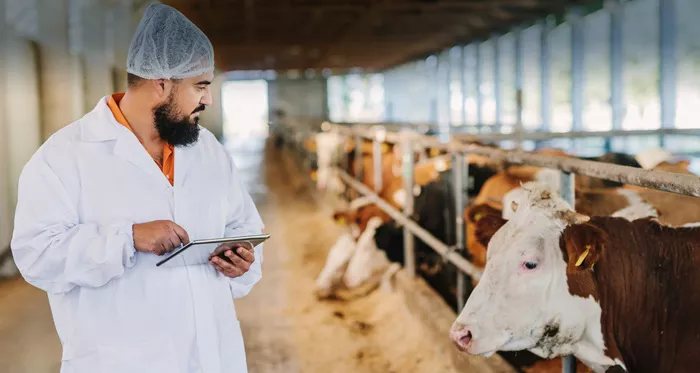PARIS, FRANCE — The World Organisation for Animal Health (WOAH), founded 100 years ago to safeguard animal health through international collaboration, has evolved into a pivotal entity in establishing global standards for animal health, welfare, and veterinary public health. First adopted in 1968, WOAH’s standards have become essential for ensuring safe and transparent international trade, guiding Member policies and regulations. These standards are annually updated through a rigorous, science-based democratic process, and their implementation is monitored by the WOAH Observatory.
The origins of WOAH trace back to 1921, following a significant outbreak of rinderpest. A shipment of zebus from India, quarantined with cattle from the United States in Antwerp, Belgium, led to the spread of this deadly disease across Europe. This incident underscored the necessity for international cooperation in disease prevention. Consequently, at the 1921 Paris Conference, 43 countries and territories established the Office International des Epizooties (OIE), now known as WOAH, officially founded on January 25, 1924.
WOAH’s standards have since evolved into a comprehensive system of publications, providing international guidelines for monitoring, detecting, and controlling over 120 animal diseases. The Terrestrial Code, first published in 1968 as the International Zoosanitary Code, outlines protocols for the prevention, early detection, reporting, and control of pathogens in terrestrial animals.
WOAH’s standards are continually updated to reflect the latest scientific and technological advancements. Proposed revisions are developed by experts, discussed with Members and stakeholders, and adopted annually by the World Assembly of Delegates, where each Member has an equal vote.
Jean-Marie Paugam, WTO Deputy Director General, and Brazilian Minister of Agriculture and Livestock Carlos Henrique Baqueta Fávaro highlighted the significance of WOAH standards in international trade. “WOAH Standards, recognized by the WTO as a reference in animal health and zoonoses, bring security, impartiality, and equity to the international trade of animals and their products, avoiding unnecessary trade barriers,” said Fávaro.
WOAH’s collaboration with the WTO and other international organizations extends beyond trade. As a founding partner of the Standards and Trade Development Facility (STDF), alongside FAO, WHO, the World Bank, and WTO, WOAH assists developing nations in meeting international sanitary and phytosanitary standards. Initiatives include controlling African swine fever in Vietnam, Laos, Cambodia, and the Philippines, improving animal identification systems in Mongolia, and enhancing SPS compliance for meat exports in Ethiopia.
Following a testing phase, the WOAH Observatory published its first results in 2022, with full operational capacity expected by 2025. The Observatory collects and analyzes data from Members and external sources to identify implementation gaps, provide recommendations, and guide WOAH’s capacity-building and standard-setting activities.
Marianna Karttunen emphasized the value of WOAH’s Observatory, stating, “Other international organizations will be able to learn much from WOAH’s experience in setting up the Observatory. WOAH’s active participation in the Partnership of International Organisations for Effective International Rulemaking is therefore timely and very welcome.”
The Observatory is a cornerstone of WOAH’s digital transformation, aligning with the principles of thoroughness, international cooperation, and transparency that ensure the continued relevance of international standards today.
Related topics:
- Select UK Issues Four-Day Heat Health Alert Amid Mini-Heatwave UK Issues Four-Day Heat Health Alert Amid Mini-Heatwave
- Select Canberra Expands Paediatric Health Services in 2024-25 ACT Budget Canberra Expands Paediatric Health Services in 2024-25 ACT Budget
- Select Health Ministry Screens Over 1.6 Million Elementary Students for Hepatitis C in Presidential Initiative Health Ministry Screens Over 1.6 Million Elementary Students for Hepatitis C in Presidential Initiative


